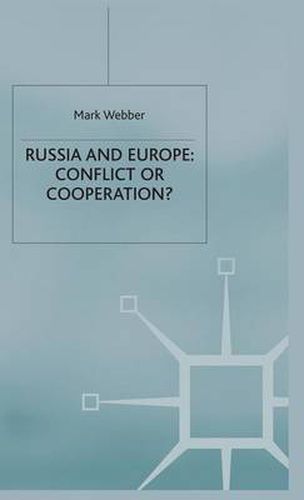Readings Newsletter
Become a Readings Member to make your shopping experience even easier.
Sign in or sign up for free!
You’re not far away from qualifying for FREE standard shipping within Australia
You’ve qualified for FREE standard shipping within Australia
The cart is loading…






This title is printed to order. This book may have been self-published. If so, we cannot guarantee the quality of the content. In the main most books will have gone through the editing process however some may not. We therefore suggest that you be aware of this before ordering this book. If in doubt check either the author or publisher’s details as we are unable to accept any returns unless they are faulty. Please contact us if you have any questions.
This volume focuses on how Russian policy toward Europe (and sometimes, by extension, the West more broadly) has developed since the end of the Cold War and the disintegration of the Soviet Union. It argues that important aspects of co-operation have endured in the relationship despite all the vicissitudes of Russian domestic politics and at a time of flux in the international relations of the European continent. This co-operation has, at times, been fragile and has not prevented some obvious and deep seated disagreements. It has, however, survived. Indeed, Russia and Europe have increasingly routinized their relationship in a range of formal multilateral institutions.
$9.00 standard shipping within Australia
FREE standard shipping within Australia for orders over $100.00
Express & International shipping calculated at checkout
This title is printed to order. This book may have been self-published. If so, we cannot guarantee the quality of the content. In the main most books will have gone through the editing process however some may not. We therefore suggest that you be aware of this before ordering this book. If in doubt check either the author or publisher’s details as we are unable to accept any returns unless they are faulty. Please contact us if you have any questions.
This volume focuses on how Russian policy toward Europe (and sometimes, by extension, the West more broadly) has developed since the end of the Cold War and the disintegration of the Soviet Union. It argues that important aspects of co-operation have endured in the relationship despite all the vicissitudes of Russian domestic politics and at a time of flux in the international relations of the European continent. This co-operation has, at times, been fragile and has not prevented some obvious and deep seated disagreements. It has, however, survived. Indeed, Russia and Europe have increasingly routinized their relationship in a range of formal multilateral institutions.